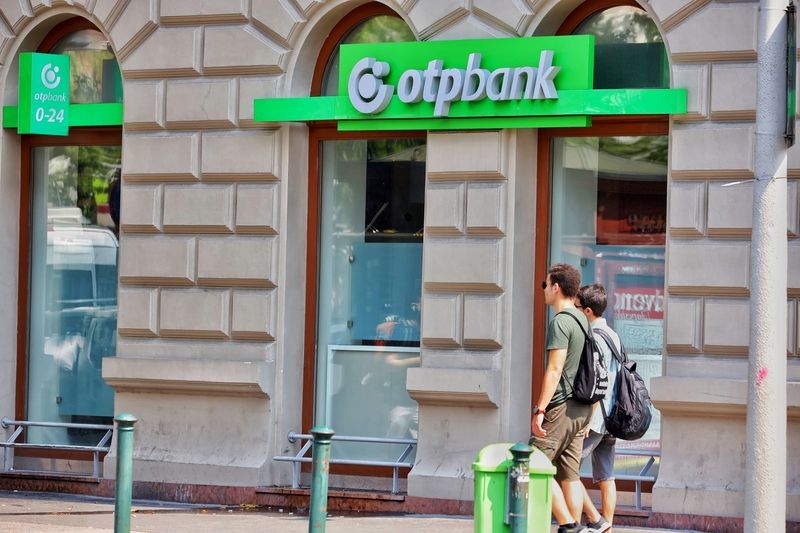Hungary's OTP Bank tested the public Dim Sum bond market with a debut Rmb900m (US$125m) three-year non-call two green senior preferred bond, further strengthening the country's ties with China.
A banker on the deal said the offering from Hungary's largest commercial bank reflected the nation's increasingly warm relationship with China.
In May last year, China's president Xi Jinping made a state visit to Budapest, and two months later Hungary's prime minister Viktor Orban met with Xi in Beijing. Orban was also the only leader of a European Union country to attend the 2023 Belt and Road Forum, and China is helping to finance a rail link between Budapest and Belgrade in Serbia.
The offering comes after Hungary issued a Rmb2bn three-year green Panda bond in 2022.
OTP, which has a presence in 11 countries in Central and Eastern Europe, had considered issuing Panda bonds in China's onshore market. But the senior preferred format that it had in mind, eligible as regulatory capital under EU standards, would have been more challenging to market as there have been no such Panda bonds yet.
OTP early last year raised Rmb300m from a privately placed Dim Sum using the same structure, for which it received a good response. Since then, it has been talking to investors and holding non-deal roadshows to prepare for the maiden public offering.
“They want to expand the renminbi funding channel, and deepen market access, so they decided to do a public deal,” said a second banker on the transaction.
A banker away from the trade said the competitive funding cost that the Dim Sum market offers has attracted the attention of many international issuers recently, but that the challenge is to build a local investor base to print a decent size. She said she has a pipeline of foreign firms looking to raise renminbi, but that those deals may take a while to materialise.
OTP’s offering was not an easy one to market as both the credit and the format were not familiar to investors. The bank did a lot of roadshows in Asia, especially to explain the structure, said the second banker.
Proceeds of the Dim Sum will be used to meet the EU’s minimum requirement for own funds and eligible liabilities (MREL), which is similar to the total loss-absorbing capacity requirement. OTP previously issued US dollar and euro MREL bonds in senior preferred format.
High willingness to call
"The bank has ample cash and doesn't need to raise debt for working capital. They only need to strengthen the regulatory capital," said the first banker on the deal. "We marketed it as a two-year bullet ... They have a high willingness to call the bonds at the first call date."
The banker said that while investors have some familiarity with regulatory capital in light of Chinese banks' previous TLAC bond issues onshore, some were still concerned after the Credit Suisse collapse, which wiped out the Swiss bank's AT1 bonds.
"The senior preferred format is essentially senior unsecured with a loss-absorbing feature, and it's higher in the ranking compared to Tier 2 and AT1," said the banker.
The bonds will not be treated as MREL debt once there is less than one year to maturity.
The leads took the view that the transaction needed to rely on anchor investors and brought in Chinese commercial banks and multilateral agencies, all of which were new to the Hungarian lender, expanding the issuer’s investor base in the region.
They launched the deal on Monday morning at final guidance of 3.5% to minimise the impact of market volatility and execution risk following the US strikes against Iranian nuclear facilities at the weekend.
The trade was priced at par, to yield 3.5%.
The market response exceeded expectations. There was strong interest from asset and fund managers and securities houses, as well as investors from London and the Middle East. The bond was upsized from an initial target of Rmb600m–Rmb700m and was 1.5 times subscribed.
Final deal statistics were not disclosed.
The first banker said pricing was “attractive” and helped bring in orders from international investors. OTP did not try to squeeze pricing inside its curve but instead offered a premium, while keeping the funding cost similar to its euro-denominated bonds after the currency swap.
The Hungarian lender is rated Baa1/BBB/BBB+ (Moody's/S&P/Scope), better than the sovereign's Baa2/BBB–/BBB ratings, and the Reg S bond will be rated BBB+ by Scope.
If not called at the first call date, the coupon will be reset to Shibor plus 1.993%.
Citic Securities, DBS Bank, China International Capital Corp, ICBC (Asia), China Zheshang Bank Hong Kong branch, China Merchants Bank (Europe), ABC International and OTP Bank were joint bookrunners.
Proceeds will be used to finance a portfolio of loans, credits and investments that meet the criteria set in the bank's sustainable finance framework.






